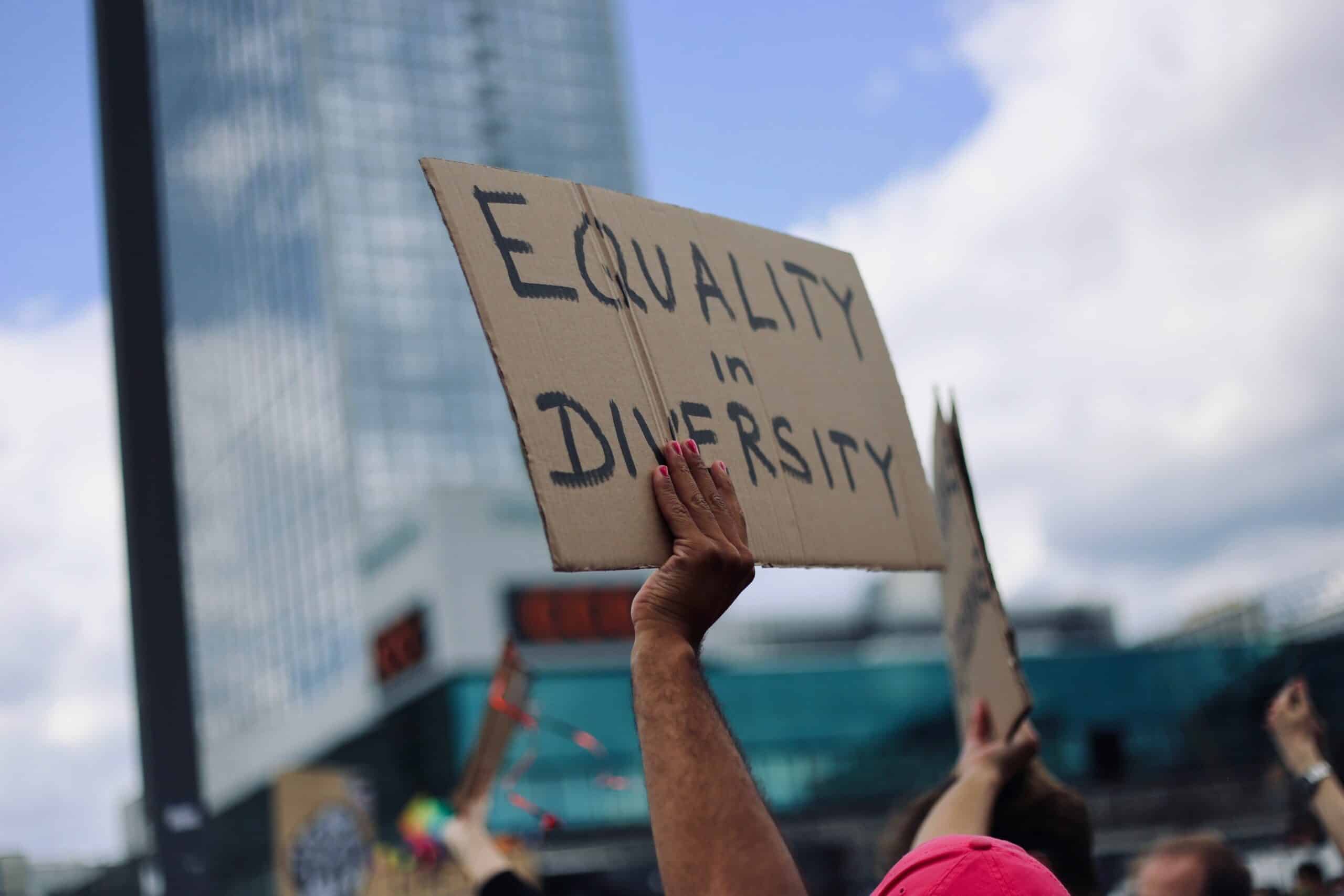Human Resources
HR Trends 2021: Connection
8 januari 2021

Our sense of connection got rattled to its very core throughout the COVID-19 pandemic. Humans thrive on interaction, discussion, and collaboration. Although new technologies still enable this to happen, businesses have had to take an extra step to ensure that teams feel even more connected when working virtually.
It’s also an opportunity for businesses to embrace the diverse skills, expertise, background, perspectives, and ideas of their employees, empowering them to solve future challenges together. Making diversity and inclusion a priority enables every employee to make a marked difference.
With our MC Joe Sweeney, we brought together 4 HR experts from around Europe, to discuss the big trends for HR and the workplace in 2021. Below, watch them discuss the theme of Connection and its role in HR and the workplace in 2021.
Alexandre Pachulski, author, co-founder and CPO at Talentsoft
Neelie Verlinden, Editor-in-chief of AIHR Digital and Digital Content Manager at Talentsoft
Robindro Ullah, Managing Director at Trendence Institut, HR blogger and Influencer
Debra Corey, Chief ‘Pay it forward’ Officer at Debco HR Limited, Author and Speaker
Interested in discovering more? We have also published an eBook, which outlines our trends and provides links to more reading. Download it here.
Video Transcription:
JOE: Now we’re going to move on to Connection and we’re going to, as we always do, start with another clip from popular culture.
[Extract from the movie: Moneyball]
JOE: So Alex, this third trend around Connection is strongly linked to the previous two. We just saw a clip from the movie Moneyball. Can you explain what that has to do with HR in the workplace in 2021?
ALEX: Moneyball is a great HR lesson in itself and in particular for recruiters. In two words what the movie is showing is that the name of the game now it’s not about hiring and gathering people that match with the criteria that are commonly accepted. In the movie it’s five criteria that are followed by all the baseball teams in the league. It comes back to the humility point because if we say “I don’t know” and if we find we’ve got to find answers – answers being found together will require collaboration. More than ever – we claimed that for years with ‘digital transformation’ but now is the time because we won’t be able to find solutions alone, because no one here in humankind will have learned a solution – a pre-existing solution somewhere – so solutions have got to be invented. And as once someone was saying in a TED “Innovations come from ideas having sex”. And ideas have got to come from different angles, different lights, different minds and that’s what the Moneyball movie is all about. It’s all about stopping hiring stars – top performers because they won’t have a solution. There will be no individual heroes anymore, it’s all about bringing people together, who because of their diversity, because of their differences, when you assembled them together, you’ve got a team and you got the ground to create new stuff. The stuff that we need today, and if you just take the illustration of this webinar – this is the first time of my life that I’m recording the HR Trends this way. We are both of us in a room here in Paris the others are on zoom at home and yet there is something here. There is a ground to communicate. Why? Because we took just the time, the necessary time before to get to know each other. I believe it would have been extremely complicated to start from scratch without knowing who is Debra, who is Robindro. So we kind of organized this event in a way where eventually – and I hope it’s the case for you which are at home or maybe at the office too – I hope there is emotion here something is going on. I love the way we can jump in on discussion and so on, so what I believe is that you can still create connections in this future world. I believe that connections are the only way to create the solutions that we will need in the coming years and I believe it’s in a way a good news because I believe there is no fun in doing things alone. Anywhere you see that – in sports, in arts, in your personal life. I see no reason why it would be the case at work and yet so many people have been used. And if they were asking for help it was almost a weakness. We’ve got to change this mindset too.
JOE: Neelie, we’re talking about different themes around connection, like getting to know your employees better and actually creating stronger connections with your colleagues. Do you have reflections on that?
NEELIE: Yes I think it makes complete sense for organizations to create stronger connections with the people that work within them but also for employees to create stronger connections between themselves, especially now in these times where so many of us are working alone from our home. I think what becomes more and more important is to feel this sense of connection with your colleagues as well as with the company that you work for. This is what Alex actually said – it doesn’t make sense to do all the work by yourself and to be afraid to ask for help. I think along the same lines it doesn’t make sense to not have a connection a stronger connection both with your colleagues and with the organization you work for.
JOE: And Robindro, we’ve already touched on how connection can relate to recruiting especially in this Moneyball example but in your experience, how is it changing the ways that that organizations are recruiting?
ROBINDRO: For me, from my point of view, it’s also a topic of for example culture fit. Yeah if people are connecting more easily, if they have a culture fit…like you just said it we had a pre-meeting and I think we have a very similar mindset so we connected easily…and in the way how people recruit, at least in Germany, they’re more using data-driven tools to measure this cultural fit to have some kind of cultural basis they can build on the recruitment process. In Germany we have good examples from NGOs who are already started because for them this fit and this connection with the people is crucial for their work.
JOE: Debra, I just want to come to you as well. I believe that you’ve looked into what’s called ‘social connections’. Can you tell us a bit more about, you know, about what that is about and share some examples from companies you’ve worked with?
DEBRA: Yeah I recently wrote a blog on social connections and so I did a little bit of research on it. So the first piece of trivial information, I wanted to share with you a report that says that social connections are as important to your well-being as eating your vegetables, exercising and getting enough sleep. And I don’t actually think that you’d be surprised by that if you think about how important those social connections are with your friends, your family and your colleagues. It really can brighten up your day and help your emotional and mental well-being so as you said companies are doing tons of work when it comes to that. I’ve got a white board that’s too big to put in front of the screen with post-its of all the amazing things that companies are doing because people know that I like to share stories so they write to me their stories and it’s just been really really creative. And what companies are finding is we need to find ways to connect with everyone, not just the type of people who will join in and do online talent competition or online dance-a-thon or something like that. They’re really trying to touch different groups of people. One of my favorite examples is a company told me that they had some employees who were a bit on the OCD parameter and that during lockdown they had cleaned every single piece of furniture and every ledge in their house and they were getting a bit bored so they volunteered to do a cleaning challenge for the rest of their employees. And they came on and they gave these lessons on how to clean and then they had a competition and I think it’s just an example of bringing people together in different ways. So yeah really really important to do this more so than ever before.
JOE: Just finally, for you Alex, one thing I was thinking is does this what does this change in terms of the way we look at teams in an organization?
ALEX: Real teams you mean? Not Microsoft Teams? Oh sorry this is the kind of joke of 2021, now i’m sorry for that. What is changing is that we’ve got to think on a more global level. It means that it’s not about now just what I want, what I need. We have talked a lot about the customization of relationships, for instance between the manager and the employee. Actually what is changing right now is that you’ve got to put, in a way, the interest of the team before your own interest. Just talking about the remote work, some of us want to go remote forever. Some of us want to go back to the office, and if you combine all these ambitions, constraints, wishes…at the end for managers and for HR it’s impossible to deal with that. What’s got to change is that obviously we’ve got to keep up with our wishes and constraints but we’ve got to put the team interest I believe first and say “if I stay at home today is it a problem for my team or not?” Because if it is a problem, there is a very thin line between keeping up with my constraints and becoming selfish. So it’s about this balance – it comes back to education and what I say is very cultural because obviously it will be different from one country to another so if we think collectively, think about the team interest first and we have a manager that tries to combine the individual constraints, keeping this team objective first, I’m absolutely sure that there is a way where all the problems we are struggling with right now are going to be solved. I believe it’s a very important key. I absolutely agree and I think that more so than ever goes back to that humility in being human. We need to get to understand the entire person so what are the different challenges? What are the obstacles that everybody has? You know before the call we were all making apologies – “okay I’ve got a dog sleeping over there, I’ve got a cat over here, I’ve got a husband working upstairs.” And i think the more that we collectively, not just leaders in HR, take the time to get to know each other and support each other, I think the better that we’ll be able to overcome exactly what you’ve spoken about. But that change needs to happen.
JOE: So connection was a third trend that we see for HR and the workplace in 2021.
We’ve recently launched a new eBook entitled, “Finding Clarity in Chaos: HR Trends and the New World of Work in 2021” that dives a lot deeper into the lessons we’ve learned from 2020 and how we’ve applied that to bringing our new V(h)UCA model to life. So be sure to download the eBook today and then let our team of HR experts help you become V(h)UCA-ready for the year ahead—and well beyond!


